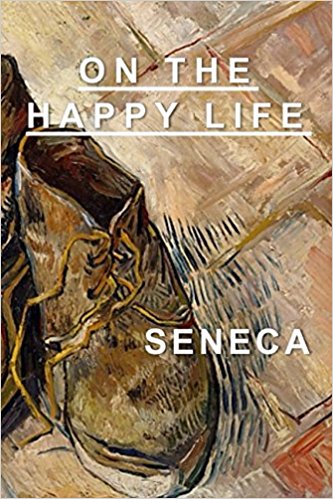We hope you love the books people recommend! Just so you know, The CEO Library may collect a share of sales or other compensation from the links on this page.
This book has 1 recommendation
Stephane Grand (Managing Partner/S.J. Grand Financial and Tax Advisory)
When I look back at my career path, it is the one of an entrepreneur. I have built various businesses, from accounting and financial advisory firms to tech and security businesses. I have also spent most of my adult life in China, a country that is quite hostile to foreigners and very unfair. I have accepted to suffer the hardships of building my business without any investment from anybody, and stick very firmly to my values. I would recommend young people to read about adventure, hardships, and moral choices. Of course, it would be important to also read about the drivers of our humanity, hence the motley list below:
[...]
- De Vita Beata (on the happy life) by Seneca the Younger
Amazon description
De Vita Beata ("On the Happy Life") is a dialogue written by Seneca the Younger around the year 58 AD. It was intended for his older brother Gallio, to whom Seneca also dedicated his dialogue entitled De Ira ("On Anger"). It is divided into 28 chapters that present the moral thoughts of Seneca at their most mature. Seneca explains that the pursuit of happiness is the pursuit of reason – reason meant not only using logic, but also understanding the processes of nature. Seneca, in agreement with Stoic doctrine, argues that Nature is Reason (logos) and that people must use their powers of reason to live in harmony with nature and thus achieve happiness.
In his words, "rerum naturae adsentior; ab illa non deerrare et ad illius legem exemplumque formari sapientia est," which means "I follow nature; it is common sense not to stray from it but to be molded according to its law and example." Seneca proposes to follow a logical sequence in this approach, starting with the definition of the objectives that the person wants to obtain. In decision-making he scorns the ways of the masses ("the most beaten and frequented paths are the most deceptive") since people are "more willing to trust another than to judge for themselves" and "a mistake that has been passed on from hand to hand finally involves us and works our destruction."
Get this book on Amazon | Barnes & Noble | Book Depository | iBooks




